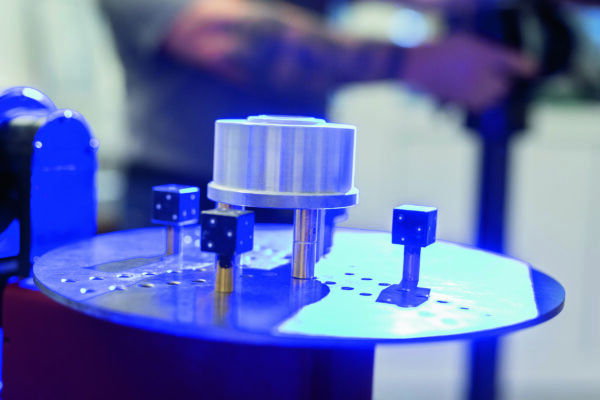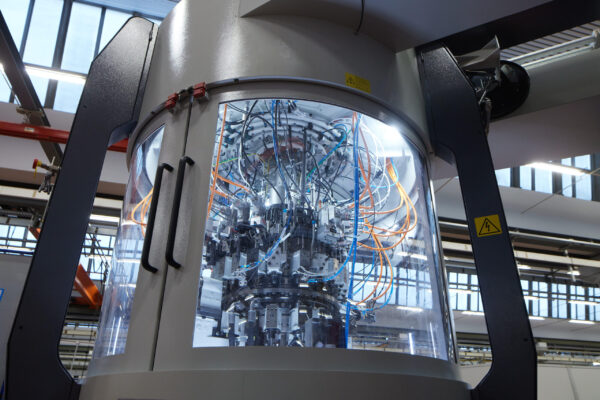Solid State’s FY16 results were flattered by an undisclosed sum in settlement of the terminated MoJ contract. This obscures the underlying performance of the rest of the business, which looks in a good position, given the record order book at the year-end, to deliver a modest improvement in underlying profit before tax in FY17. Management expects the recent Creasefield acquisition to generate incremental profit from FY18 and is keen to execute one acquisition each year going forward. Investors still seem unable to look beyond the ups and downs of the MoJ contract. Increased confidence that the group is able to deliver the modest underlying profit growth in our estimates should help move the share price towards our indicative SOTP valuation of 505p/share.
Year
end |
Revenue (£m) |
PBT*
(£m) |
EPS*
(p) |
DPS
(p) |
P/E
(x) |
Yield
(%) |
03/15 |
36.6 |
3.2 |
37.4 |
12.0 |
8.5 |
3.7 |
03/16 |
44.1 |
4.4** |
52.0** |
12.0 |
6.1 |
3.7 |
03/17e |
43.6 |
3.2 |
32.9 |
12.5 |
9.7 |
3.9 |
03/18e |
45.1 |
3.5 |
35.4 |
13.0 |
9.0 |
4.0 |
Note: *PBT and EPS are normalised, excluding amortisation of acquired intangibles, exceptional items and share-based payments except in FY16. There are no share-based payments in FY17 or FY18. **Including MoJ settlement and other exceptional items.
FY16 results flattered by MoJ settlement
FY16 revenues were in line with our estimates. Reported profit before tax, which was flattered by a one-off payment in settlement of the MoJ contract, was very slightly ahead. The terms of the settlement are confidential, as is usual in this situation, but we believe that the normalised profit before tax estimate shown in our June note, which was similar to the record levels achieved in FY15, is representative of underlying performance for the year.
Record order book supports FY17 underlying growth
The group has started the year with a record order book (£17.8m vs £14.4m end FY15 excluding MoJ). This underpins our FY17 estimates, which we leave broadly unchanged. We expect underlying revenues to be similar to FY16, with a small increase in underlying PBT attributable to the cost-savings programme instigated by management as a precaution in H116. The Creasefield acquisition adds an estimated £4.0m revenue in FY17, while neutral at the PBT level. Noting management’s reference to resuming a progressive dividend policy, we revise our FY17 dividend estimate from 12.0p to 12.5p. We also introduce FY18 estimates.
Over-reaction to MoJ termination still depresses price
The share price dropped from 525p to 350p in February on the news of the termination of the MoJ contract and has not recovered, despite confirmation of a cash settlement with regards to the MoJ programme and the Creasefield acquisition. Management does not expect Brexit to have a material impact. As the market becomes more confident that Solid State is able to deliver the performance shown in our estimates, the share price should begin to move towards our indicative SOTP valuation of 505p/share (unchanged).
In our initiation note, published in September 2015, we described the successful strategy that management has been pursuing since 2002. This delivered five consecutive years of profits growth between FY10 and FY15. It is based on top-line growth through selective acquisitions, the addition of new product lines and entry into new industry verticals such as green energy and security solutions, combined with margin improvement through focus on value-added design and assembly capability and development of own-brand products. This diversification has provided resilience in softening markets globally and reduced the impact of delays in individual major programmes such as the airborne antennae programme. We highlight recent examples of this strategy in action in the following paragraphs.
Management has completed two acquisitions in the last 18 months. The first, Ginsbury Electronics, was acquired at the start of FY16. The transaction has extended the range of products offered to Solid State Supplies’ existing customer base and the range of embedded products offered to Ginsbury customers. Cross-selling initiatives have been successful, with many customers now developing products utilising expertise from both entities, for example systems deploying both displays (Ginsbury) and embedded computing devices (Solid State Supplies) for electric vehicle charging and on-food printing. Ginsbury made a material contribution to group profit during FY16.
In June 2016 the group acquired Creasefield, which specialises in the design and manufacture of custom battery packs. This transaction extends the technologies offered and takes the group into new sectors. Solid State’s solutions are based primarily on lithium-ion technology while Creasefield is also expert in alkaline battery technology. Solid State’s existing batteries activity is primarily focused on the oil and gas and sub-sea sectors, where investment is currently subdued because of low global oil prices. Creasefield is also involved in the aerospace, medical, security and water industries. The combination enhances the group’s existing engineering and production capabilities for batteries – there is substantially more manufacturing space at Creasefield’s site in Crewkerne than that allocated for battery activity in Redditch – and creates further opportunities for cross-selling.
Management continues to evaluate acquisition opportunities and has stated its intention of completing one transaction each year.
The distribution division, Solid State Supplies, secured two important new franchise contracts during FY16. One is with Luminus, which offers a comprehensive range of LED solutions for general lighting markets, as well as high-output speciality lighting solutions for performance-driven markets including consumer displays, entertainment lighting and medical applications. This began to contribute revenue during Q416. The other is with Silicon Labs, a global supplier of low-energy microprocessors and radio devices with annual revenues of $620m. Management expects this to start contributing revenue in FY17. We estimate that the two new franchises could generate additional $3-4m annual revenues in the medium term. We note that the Silicon Labs agreement epitomises management’s strategy of gaining franchises with mid-tier companies that have annual revenues of between $250m and $1,000m globally, thus enabling potentially faster ramp-up in sales volumes with each new franchise.
The Genie own-brand single board computer platform developed by Ginsbury has been well received, as have the own-brand LED lighting controllers developed by Solid State Supplies. On the Steatite side, new product introductions include next generation portable ticketing equipment for the UK rail industry, airborne antennas for a Northern European aerospace company and fully integrated computer cabinet systems, which have been sold to a global technology leader in the aerospace, transport, defence and security markets for use in air traffic control systems.
Additional industry verticals
Solid State Supplies has begun to sell embedded modules used in the powertrain control systems of electric vehicles and sensors for use in vehicle monitoring systems and roadside charging stations. It is also developing battery packs for deployment as energy storage with solar and wind power generation sources. Energy storage is key to increasing the adoption of renewable energy as it helps match power output with demand.
Management’s drive to improve margins appears to be working. Group gross profit margin increased by 1.3pp year-on-year to 31.8% and operating margin by 1.4pp to 9.8% in FY16. The cost-reduction programme instigated by management in H116 as a precautionary measure in response to a general weakness in the market delivered £0.25m net savings during the year. The full benefit (we estimate another £0.25m) will be visible in FY17. The new facility currently under construction in Leominster for the antennae business will reduce new equipment costing for pre-compliance testing, bringing this service in house and thus potentially improving margins.
Ginsbury continues to enhance its value-added element through the introduction of its own-brand product as discussed above, and by offering displays as part of a kit with related components. Steatite’s fully integrated computer cabinets, also discussed above, are another example. The availability of value-added design and assembly capability is a key acquisition criterion.

















